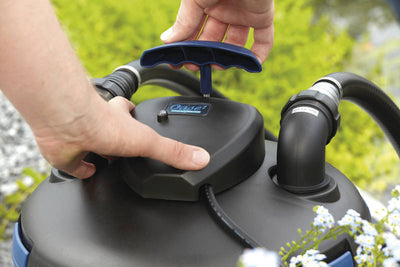 Are you thinking about raising chickens in the Southern Highlands but not surewhere to start?
Are you thinking about raising chickens in the Southern Highlands but not surewhere to start?Look no further! This ultimate beginner's guide will provide you with all the information you need to know about raising happy and healthy chickens. From choosing the right breed to setting up your coop, we've got you covered.
We understand that keeping chickens can be a rewarding experience, but it can also be quite daunting if you're new to it. That's why we've put together this comprehensive guide to help you navigate through the process of raising chickens in the Southern Highlands. Whether you're interested in having fresh eggs every day or just want to add some feathered friends to your backyard, this guide is perfect for anyone looking to start their own flock.
So, grab a cup of coffee and get ready to learn everything you need to know about raising chickens in the Southern Highlands!
Choosing the Right Chicken Breed
When it comes to choosing the right chicken breed for our Australian conditions, there are many factors to consider. You'll want to think about things like egg production, temperament, and cold hardiness. Some popular breeds for the Southern Highlands include:
- White leghorn: Leghorns prove to be an excellent choice for those seeking a cost-effective egg production breed. With their remarkable efficiency, these birds deliver a bountiful supply of eggs without burdening your wallet. Known for their energetic and self-reliant nature, Leghorns aren't particularly fond of being handled. Therefore, if you desire a bird that will be a delightful family companion, their moderate size, outstanding egg-laying capabilities, and remarkable affordability make them a top pick for anyone aiming to consistently fill their table with fresh eggs!
-
ISA Browns:
ISA Browns, a breed originating from France in the 1970s, have gained immense popularity in the world of commercial poultry farming, making them a common sight today. Their widespread recognition is attributed to their remarkable ability to lay eggs prolifically, producing more than 300 medium-sized, brown eggs annually. To support their exceptional egg production and feather maintenance, it is recommended to provide ISA Browns with protein and calcium supplements, ensuring they have sufficient energy.
ISA Browns are particularly well-suited for individuals new to poultry care, as they possess several desirable traits. These chickens have a moderate size, typically weighing between 2-3 kilograms, and exhibit adaptability to a wide range of temperatures. Their gentle and affectionate nature makes them ideal for families. Moreover, ISA Browns require relatively low maintenance and can adapt well to confined spaces, although they also enjoy foraging. When introducing new birds to a flock of ISA Browns, it is important to consider introducing birds of similar size and providing ample space for all members, as this can help mitigate potential conflicts.
- Black Australorp and white leghorn: Black cross tends to lay larger-sized eggs. In terms of temperament, the black cross demonstrates a calm and gentle nature, making it the most placid option.
- Rhode Island and white leghorn: Among the available crosses, the white and red varieties stand out as the favored choices due to their exceptional egg-laying capabilities. These crosses display remarkable productivity, consistently providing a high number of eggs.
We have vaccinated day old chicks available every week. Contact our knowledgeable staff for current availability or to find out when the next hatching dates are, or to place an order for pullets.
Chicken Coop and Run Essentials
 Once you've chosen your chicken breed, it's time to set up your coop and run. Your coop should be large enough to comfortably house your chickens and provide them with enough space to move around. You'll also want to make sure that your coop is well-ventilated and provides protection from the elements.
Once you've chosen your chicken breed, it's time to set up your coop and run. Your coop should be large enough to comfortably house your chickens and provide them with enough space to move around. You'll also want to make sure that your coop is well-ventilated and provides protection from the elements.
Chicken Coop Essentials
When setting up your coop, there are a few essentials that you'll need to consider. These include things like:
 Nesting Boxes
Nesting Boxes
Your chickens will need a place to lay their eggs, so you'll want to provide them with nesting boxes. These should be filled with clean straw or shavings to provide a comfortable place for your chickens to lay their eggs.
Roosts
Chickens like to roost at night, so you'll want to provide them with a place to do so. Roosts can be made from wooden dowels or branches and should be placed at a height that is comfortable for your chickens.
Run Essentials
Your chicken run should be large enough to provide your chickens with enough space to move around and scratch. It should also be securely fenced to protect your chickens from predators. Some essentials for your chicken run include:
Food and Water
You'll need to provide your chickens with access to food and water in their run. Consider using a hanging feeder and waterer to keep the food and water clean and dry. We recommend the Bainbridge Treadle Feeder that reduces waste and prevents pests from accessing your chickens food.
Dust Bath Area
Chickens like to take dust baths to keep themselves clean and healthy. You can provide them with a dust bath area in their run by filling a shallow container with sand or dirt.
When setting up your coop and run, it's important to keep in mind the needs of your chickens. Make sure that your coop and run provide enough space and protection for your chickens to live comfortably. Learn more about setting up your chicken coop here!
Feeding and Watering Your Chickens
 Feeding and watering your chickens is an important part of keeping them healthy and happy. You'll want to provide them with a balanced diet that meets their nutritional needs. Some essentials for feeding and watering your chickens include:
Feeding and watering your chickens is an important part of keeping them healthy and happy. You'll want to provide them with a balanced diet that meets their nutritional needs. Some essentials for feeding and watering your chickens include:
Chook food
Chicken feed should make up the majority of your chicken's diet. There are many types of chicken feed available on the market, including starter feed, grower feed, layer feed, and scratch grains. You'll want to choose the right type of feed for your chicken's age and nutritional needs.
Treats for your flock
Treats can be a great way to supplement your chicken's diet and keep them happy and healthy. Some popular chicken treats include mealworms, fruits, and vegetables.
happy and healthy. Some popular chicken treats include mealworms, fruits, and vegetables.
Water
Your chickens will need access to clean and fresh water at all times. Consider using a hanging waterer to keep the water clean and to prevent spills.
 When feeding and watering your chickens, it's important to keep their nutritional needs in mind. Make sure that they have access to a balanced diet and clean water to keep them healthy.
When feeding and watering your chickens, it's important to keep their nutritional needs in mind. Make sure that they have access to a balanced diet and clean water to keep them healthy.
Health and Hygiene for Chickens
Keeping your chickens healthy and free from disease is an important part of raising chickens. You'll want to take steps to prevent the spread of disease and maintain good hygiene in your coop and run. Some tips for keeping your chickens healthy include:
 Cleaning Your Coop and Run
Cleaning Your Coop and Run
Regularly cleaning your coop and run can help prevent the spread of disease and keep your chickens healthy. You'll want to remove any soiled bedding and replace it with fresh bedding. You should also scrub down your coop, roosts, and run with a mild detergent and water to keep it clean.
Preventing the Spread of Disease
There are many diseases that can affect chickens, including avian influenza and Newcastle disease. You can prevent the spread of disease by keeping your coop and run clean and disinfecting it regularly. You should also quarantine any new chickens that you bring into your flock to prevent the spread of disease.
Parasite Control
 Chickens can be susceptible to parasites like lice and mites. You can prevent these pests by regularly cleaning your coop and run and treating your chickens with a poultry dust or spray.
Chickens can be susceptible to parasites like lice and mites. You can prevent these pests by regularly cleaning your coop and run and treating your chickens with a poultry dust or spray.
When it comes to the health and hygiene of your chickens, prevention is key. Taking steps to prevent the spread of disease and maintain good hygiene in your coop and run can help keep your chickens healthy and happy.
Protecting Your Chickens from Predators and Pests
Predators and pests can pose a threat to your chickens, so it's important to take steps to protect them. Some tips for protecting your chickens include:
Fencing
Your chicken run should be securely fenced to keep predators out. Consider using a wire mesh fence that is buried at least 30cm underground to prevent predators such as foxes from digging under the fence.
Coop Security
Your coop should be secure to prevent predators from getting in. Make sure that your coop has a sturdy door that can be securely locked at night.
Chicken Egg Production and Collection
One of the benefits of raising chickens is having fresh eggs every day. Here are some tips for egg production and collection:
Egg-Laying Habits
Chickens typically lay their eggs in the morning, so you'll want to check for eggs in the nesting boxes in the afternoon. You should also provide your chickens with enough nesting boxes to prevent competition for laying spots.
Egg Collection
When collecting eggs, it's important to handle them gently to prevent cracking. You should also clean any soiled eggs with a damp cloth before storing them.
Storing Eggs
Fresh eggs can be stored in the refrigerator for up to a month. You should store them with the pointed end down to help keep them fresh.
When it comes to egg production and collection, it's important to handle the eggs gently and store them properly to keep them fresh. During the warmer months, you may experience a glut of eggs! Consider sharing them with your neighbours or storing them in your fridge to keep them longer. we recommend using a pencil to write the date they were laid on the eggs to ensure certainty in freshness.
Chicken Behaviour and Socialisation
Chooks are social animals and thrive in a flock environment. Here are some tips for chicken behaviour and socialisation:
Pecking Order
Chickens have a natural pecking order, with the most dominant chicken at the top. It's important to allow your chickens to establish their own pecking order to prevent fighting and aggression.
Socialisation
Chickens are social animals and enjoy interacting with each other. You can encourage socialisation by providing your chickens with enough space and things like perches and dust bath areas.
Handling Chickens
Handling your chickens regularly can help them become more comfortable with you. You should approach your chickens calmly and avoid making sudden movements that could startle them.
When it comes to chicken behaviour and socialisation, allowing your chickens to establish their own pecking order and providing them with enough space can help keep them happy and healthy.
Troubleshooting Common Chicken Problems
Keeping backyard chooks can be a rewarding experience, but it can also come with its own set of challenges. Here are some common chicken problems and how to troubleshoot them:
Egg-Laying Problems
If your chickens stop laying eggs, it could be due to stress, illness, or a lack of calcium. You can help prevent egg-laying problems by providing your chickens with a balanced diet and a clean and comfortable environment.
Feather Pecking
Feather pecking is a common problem in chickens and can be caused by stress, boredom, or overcrowding. You can prevent feather pecking by providing your chickens with enough space and things like perches and dust bath areas.
Pasty Butt
Pasty butt is when feces get stuck to a chick's vent area and can cause health problems. You can prevent pasty butt by regularly cleaning your coop and run and checking your chicks' vent areas for stool buildup.
You must remove this build up carefully from your chickens vent, another pair of hands is best to help with this job as you may need to cut the soiled feathers from this area.
When troubleshooting common chicken problems, it's important to identify the cause of the problem and take steps to prevent it from happening again in the future.
Resources for Raising Chickens in the Southern Highlands
If you're looking for more information on keeping chickens in the Southern Highlands, our knowledgeable staff are an excellent resource and can help you husbandry of day-old chicks to adult hens (Pullets). They can assist you with the supply of day old chicks, point of lay hens, chicken coop setups, incubators, food, feeders, waterers, tasty treats, worming and other treatments.
Online forums and groups can be a great way to connect with other chicken owners and get advice on raising chickens.





